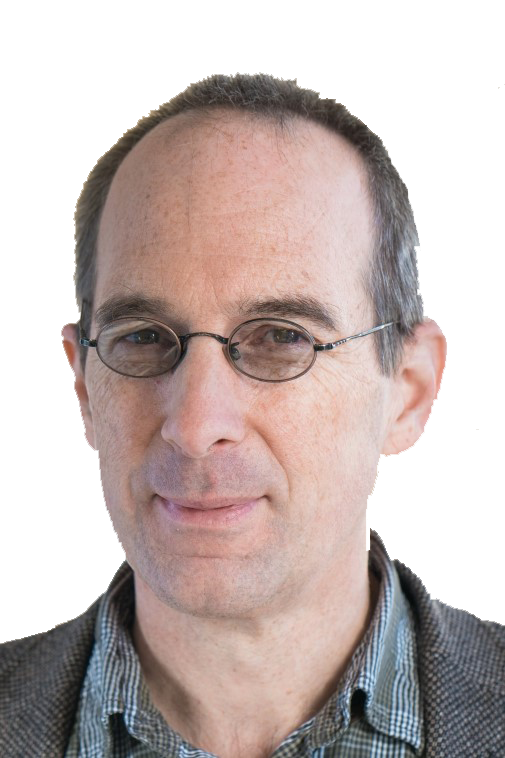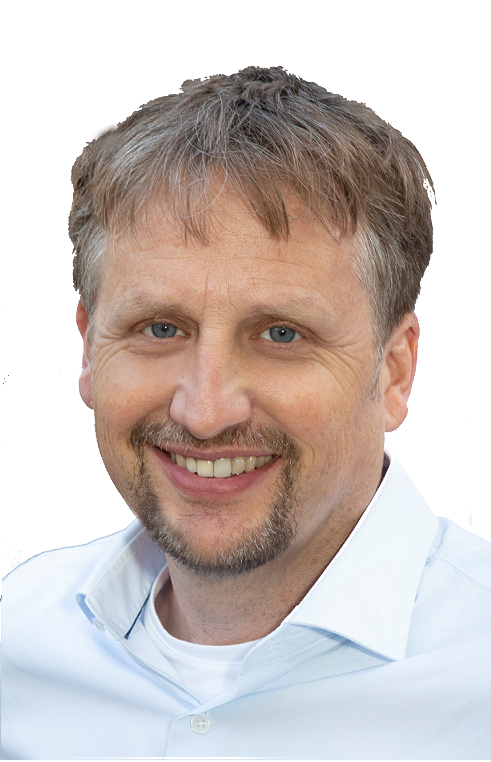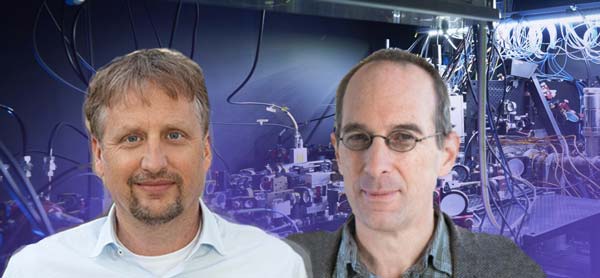[vc_row][vc_column][vc_column_text]
Prof. Dr. Alexander Holleitner, Walter Schottky Institute and Physics Department, Chair of Nanotechnology and Nanomaterials, Technical University of Munich, and Prof. Dr. Jan von Delft, Chair of Theoretical Solid State Physics, Department of Physics, Ludwig-Maximilians-Universität München give interesting insights into this highly relevant topic.
In simple words: What does quantum technology mean?

Prof. Dr. Jan von Delft: In our daily lives, we all encounter the laws of classical physics. When we throw a ball into the air, we can see how it moves and even predict and calculate its trajectory. However, if we zoom into our world to the level of atoms and molecules, these laws of classical physics lose their validity. Here, quantum mechanics reigns with rules that contradict our everyday experiences.
In quantum physics, for example, we can no longer think of an atom merely as a small ball, i.e., as a particle, but we must describe it simultaneously as a wave that extends over a specific range. As a consequence, the trajectory of an atom – in contrast to that of a ball – can no longer be predicted precisely, and an atom can, for example, be in several places simultaneously. Although quantum mechanics and its properties are difficult to imagine based on our everyday experiences, quantum theory is well understood and proven in many experiments. Quantum technology uses the properties of this theory for innovative technology. To do this, it uses, e.g., individual atoms as basic building blocks, which are subject to the laws of quantum mechanics.
What are examples of quantum technologies?
Prof. Dr. Jan von Delft: Quantum technologies of the so-called first generation are already ubiquitous in our industry today. Here, the understanding of quantum effects forms the basis of modern technology such as microchips, broadband internet, or satellite navigation. However, our focus is on quantum technologies of the second generation, in which quantum states of individual particles are prepared and manipulated in a targeted manner and can also be entangled with each other. Entanglement means that two or more particles are in a joint state and can no longer be described separately from each other, even when they are, e.g., in different locations. Examples of the quantum technology of the second generation include extremely sensitive sensors (quantum sensors) or a new, very secure way of communicating data (quantum encryption). In addition, a new type of computer – called a quantum computer – is being developed, which can solve specific problems much faster than any previous computer.
What makes the topic so exciting from your point of view?

Prof. Dr. Alexander Holleitner: I have always been fascinated by the fact that it is now possible to detect and manipulate individual electrons, photons, and atoms in the laboratory with unprecedented control. It is fascinating that from this ability to understand the matter around us with ultimate precision, an industry is emerging that will advance our society with, for example, the most accurate resistance and time standards and ultrasensitive sensors.
Why is now the right time to learn more about quantum technologies?
Prof. Dr. Jan von Delft: Quantum technologies offer great opportunities but are still limited by certain physical and technical constraints. Some applications outside of research labs are already established, especially in quantum sensors. Some products are also commercially available in other areas, such as quantum encryption or quantum computing. However, these fields are still young, and their future potentials must be well balanced with those that can be realized today.
For example, it is crucial to precisely control many individual quantum particles to realize efficient quantum computers. Efforts in this direction are developing rapidly but are facing significant technical challenges. The number of well-controllable quantum particles (qubits) is still relatively small, and the systems are prone to errors. Hence, their potential applications outside the laboratory must be carefully evaluated, and possible use cases assessed for their utility and feasibility. In this sense, understanding quantum technologies is crucial to classify the current status and distinguish real potential from hype.
How can companies get started with the technology? What are the first steps?
Prof. Dr. Alexander Holleitner: Companies need to understand how to measure individual quantum states and what technical effort is required to do so. Likewise, it is crucial to understand and assess the theoretical description of quantum technologies and quantum physics at the level necessary for the companies and their respective products. It is essential for companies to determine whether the “quantum advantage” provides them with a product advantage and whether the possible “quantum supremacy” may mean that their product’s technical and market conditions must be completely reassessed.
Do you want to learn more about quantum technologies or quantum computing?
You find more information about our new certificate courses here:
Quantum Technologies Overview Course
Quantum Computing – An introductory course[/vc_column_text][/vc_column][/vc_row]
